Unit 44: How to Prepare Your Child with Autism for Kindergarten?
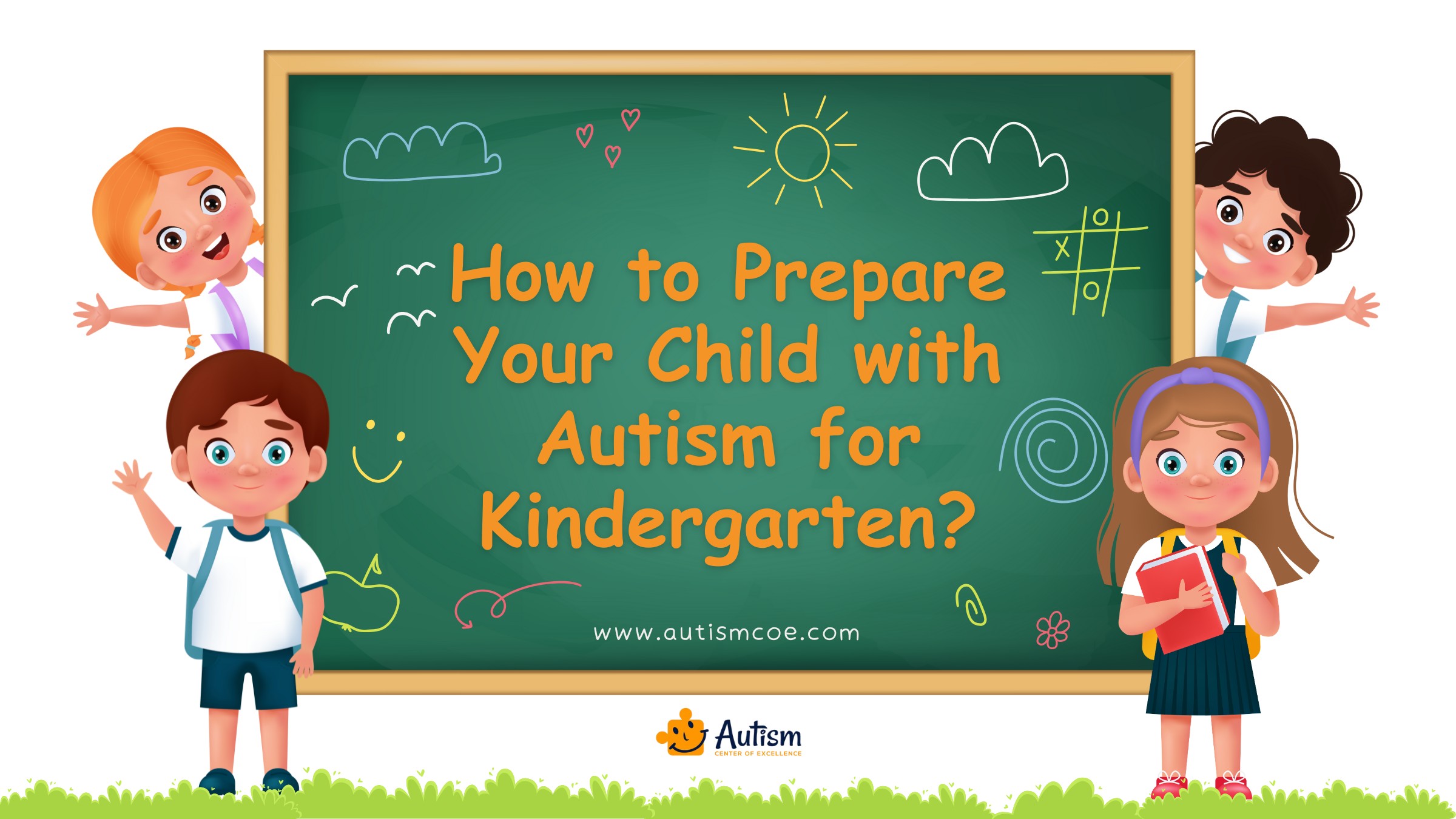
Kindergarten is such an exciting milestone in every child’s life, especially for children with autism; it brings its kind of challenges and opportunities. Preparing a child for kindergarten involves equipping that child with skills that would be needed to thrive within the structured school environment but also leaving them confident and supported. Strategies, key skills, and how ABA therapy can help your child succeed at kindergarten will be discussed.
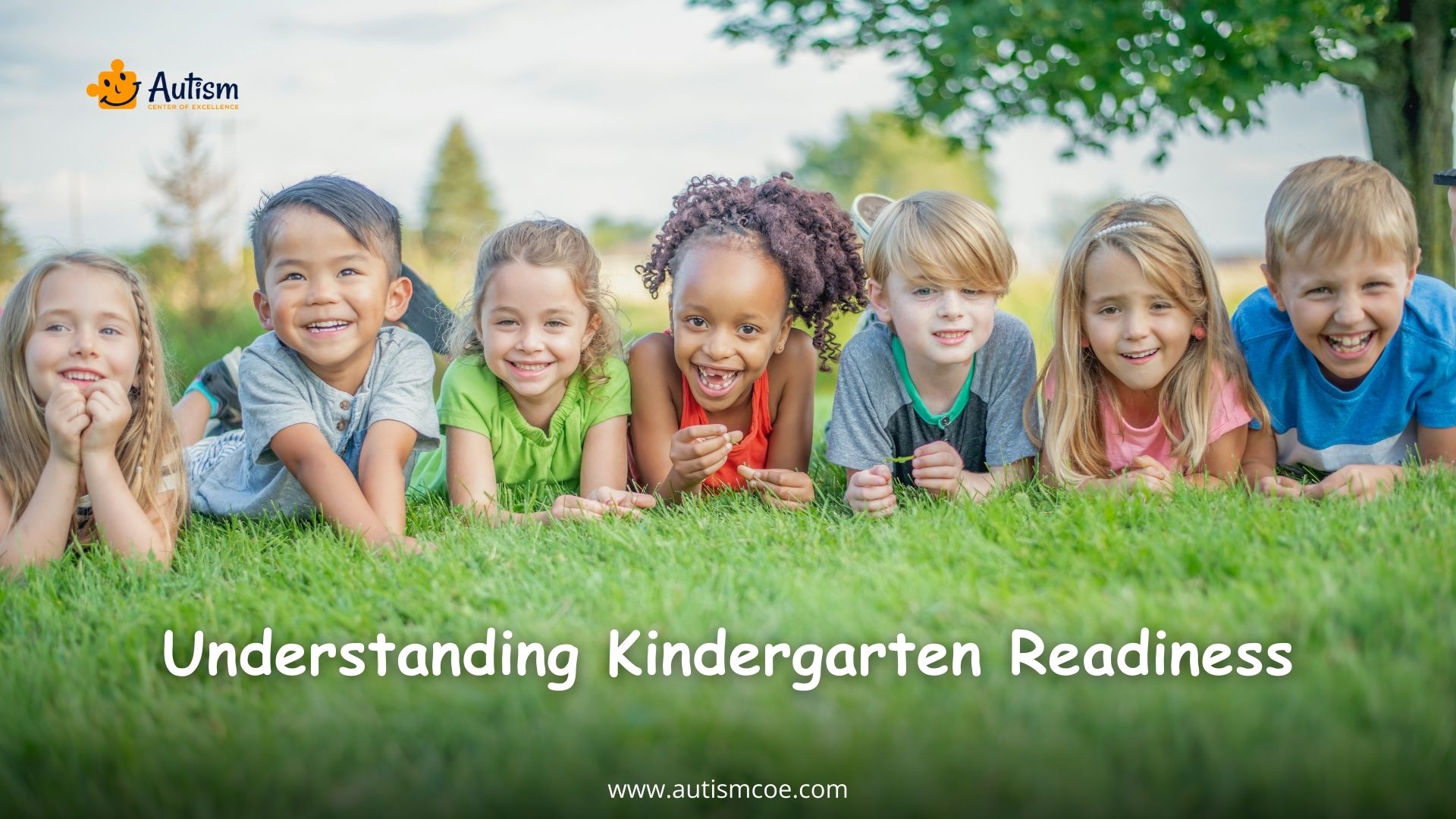
What is Kindergarten Readiness?
Kindergarten readiness is a set of skills and behaviors that children are expected to possess to ensure success in school. Such skills include social, emotional, communication, and self-help skills that will be necessary for children to settle into classroom routines, interact with their peers, and eventually participate in learning activities. For a child with autism, preparation may need to be made, and tailored interventions implemented to suit the needs of such children.
Why is Kindergarten Important?
Kindergarten students are the foundation of life-long learning. At this age, one could teach them to be critical thinkers, form friendships with people, and begin to understand core academic concepts. For children with autism, entering kindergarten with the right support helps them to become independent and confident for future success.
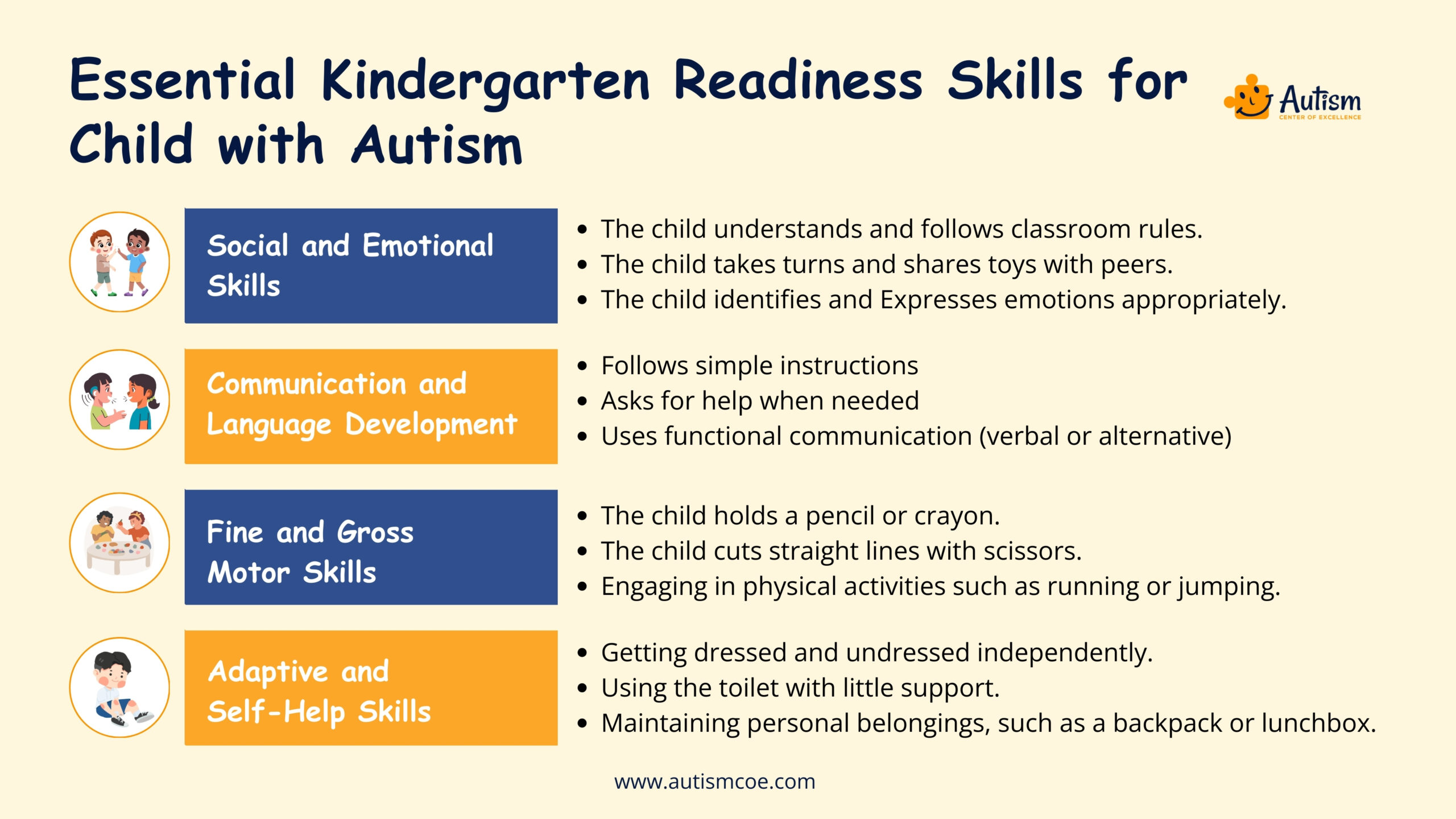
Key Kindergarten Readiness Skills for Children with Autism
Every child’s journey to kindergarten is unique, but there are common skills that can help children with autism adapt more easily:
Social and Emotional Skills
- The child understands and follows classroom rules.
- The child takes turns and shares toys with peers.
- The child identifies and expresses feelings and emotions appropriately.
Communication and Language Development
- The child follows simple instructions.
- The child asks for help when needed.
- The child uses functional communication methods by using verbal speech or alternative means of communication.
Fine and Gross Motor Skills
- The child holds a pencil or crayon.
- The child cuts straight lines with scissors.
- Engaging in physical activities such as running or jumping.
Adaptive and Self-Help Skills
- Getting dressed and undressed independently.
- Using the toilet with little support.
- Maintaining personal belongings, such as a backpack or lunchbox.
These skills are foundational for a smooth transition to kindergarten and can be built up through focused strategies and interventions.
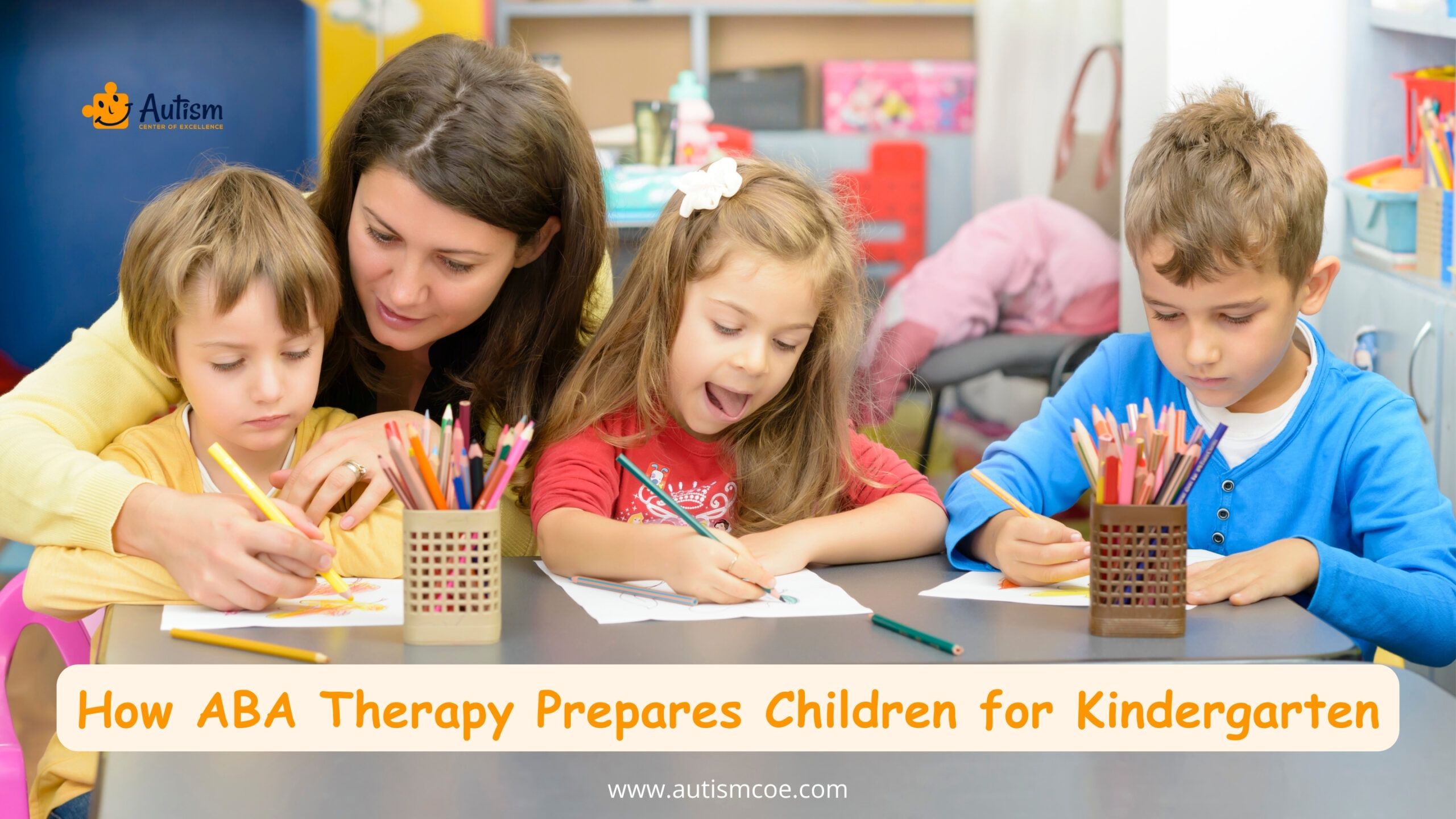
The Role of ABA Therapy in Kindergarten Readiness
ABA therapy can be most useful to educate children with autism on how to prepare for kindergarten. Some of the evidence-based techniques that are utilized in ABA therapy include:
- Enhance Communication Skills: Interpersonal skills are needed to convey their needs and communicate with other children in various contexts.
- Improve Socialization: Learning the skills needed to interact with fellow students, join group work, and have an overall better perception of body language.
- Encourage Independence: The development of skills such as coping skills or learned helplessness, self-nurturance, decision-making, and assertiveness when venturing into new situations.
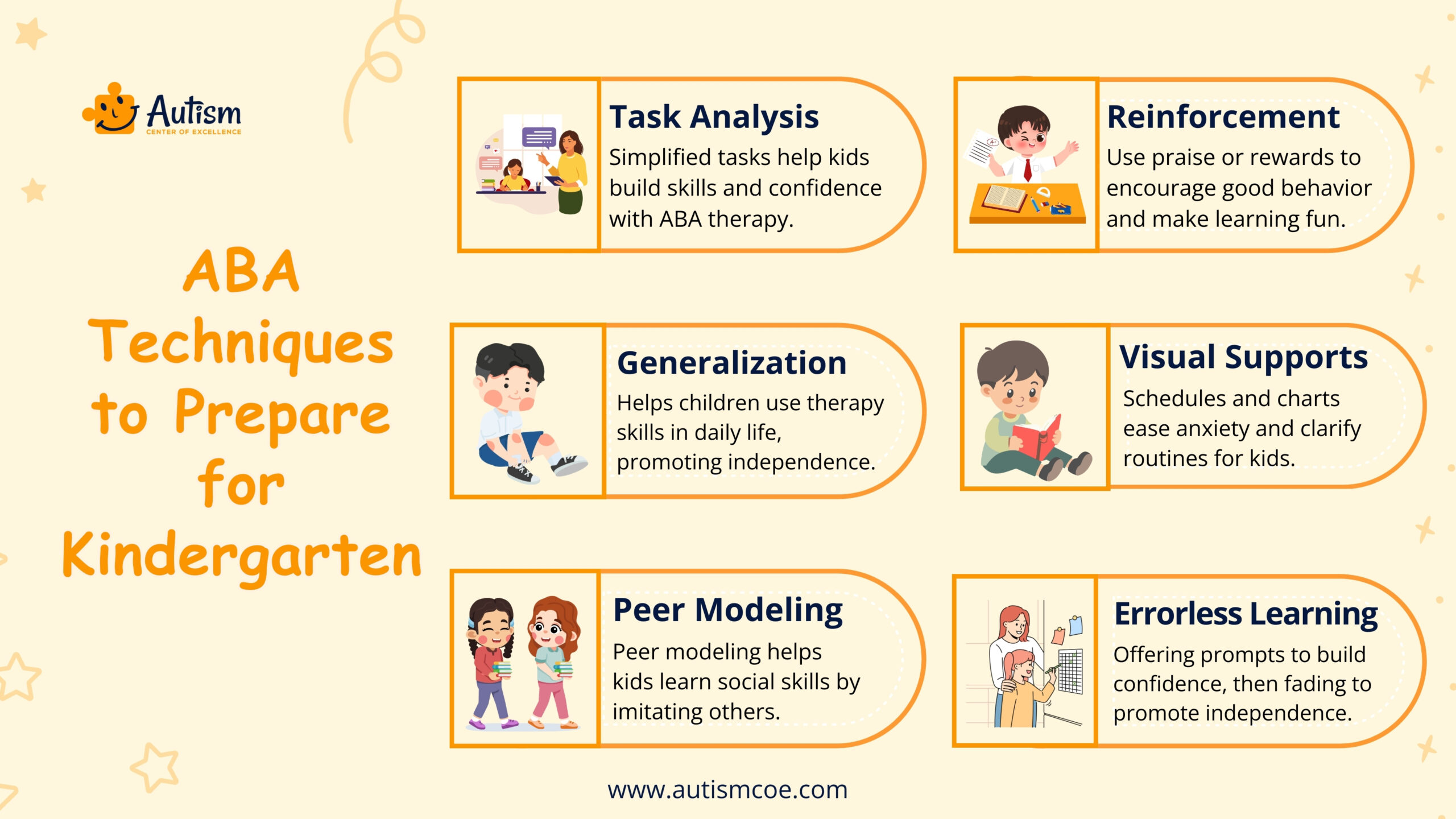
ABA Strategies for Kindergarten Readiness
Task Analysis
Dividing the activities into simpler and understandable steps, for example, in hand washing and supply arrangement. The ABA therapists guide the child through each step so that the child will learn how to do it independently in the future.
Reinforcement
By offering Positive Reinforcement, encouraging those desired behaviors, and motivating children to be consistent in performance. Consequences can be verbal or tangible, such as stars or other items or privileges that turn learning into a fun activity.
Generalization
Takes the understanding of therapy into different contexts like schools and playgrounds. The ability to generalize helps a child to apply knowledge to real life independently and flexibly.
Visual Supports
For instance, picture schedules, charts, or visual aids can help the child understand the routines and what is expected of them. This may reduce the stress of a child and assist in increasing the child’s knowledge of what is expected of them in the day.
Peer Modeling
Children watch and learn from their peers in organized activities. This type of learning can encourage the imitation of Positive Behaviors and improve the child’s social skills.
Errorless Learning
Prompts and support help the learner learn a skill easily and with less or no struggle, and, in the process, build confidence. Some of the prompts are faded out to make the child respond independently.
ABA therapy can be adapted for the child, thus making it a great preparation for kindergarten for children with autism. In addition, ABA therapists work with parents in order to create a consistent home and school setting.
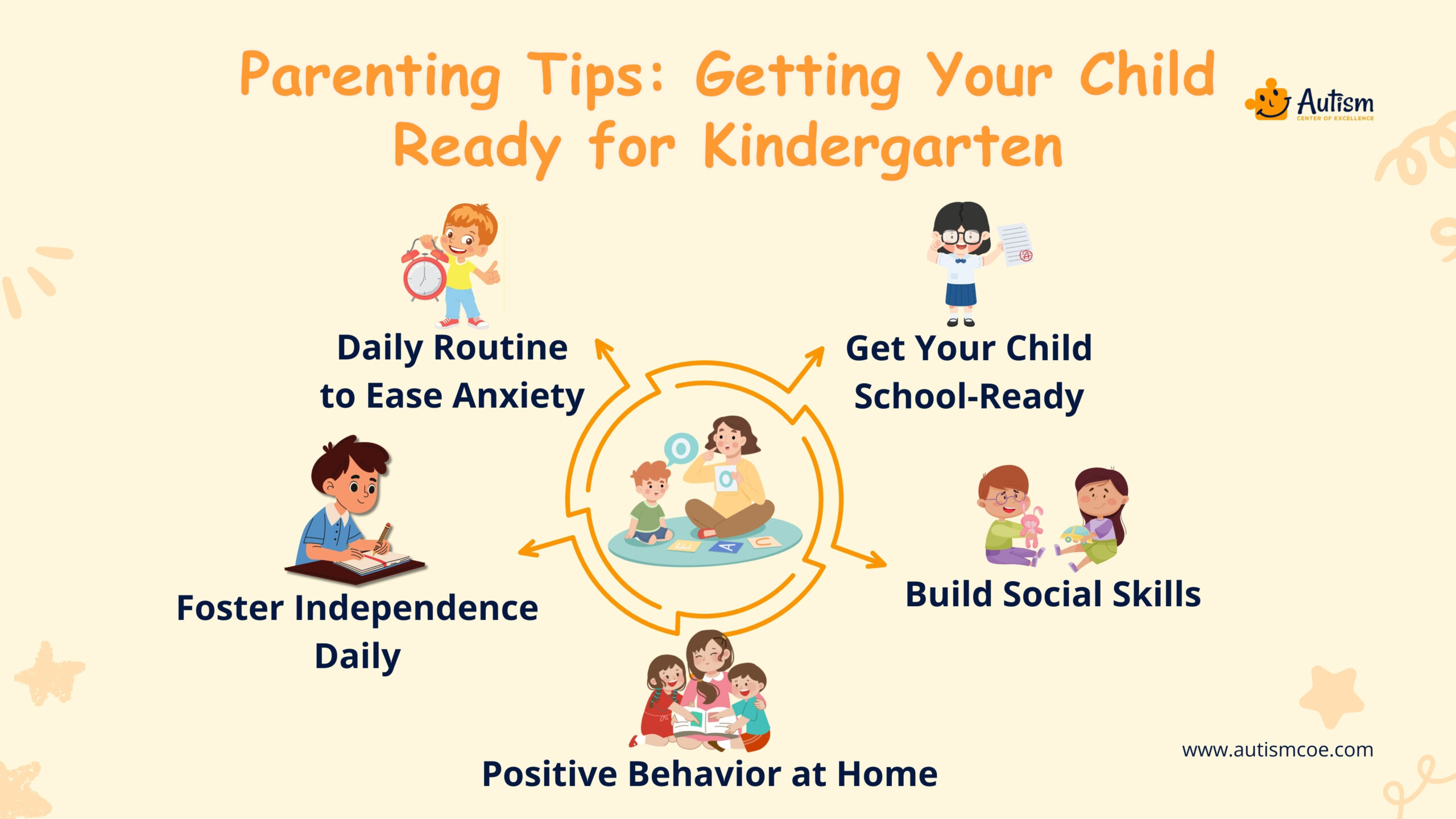
Tips for Parents: Preparing for Kindergarten
Parents have a great responsibility to ensure that their children are well-ready for kindergarten. Here are some action tips to make the transition smooth:
1️⃣Establish a Daily Routine to Reduce Anxiety
Create a routine that is similar to a school day, waking up and having time for meals and even other structured activities. This will help in the transition and decrease anxiety levels as well.
2️⃣Encourage Independence with Everyday Tasks
Try to get your child to pack his backpack, wear his clothes, or clean his room. All the above are confidence and independence builders.
3️⃣Practice Classroom Behaviors at Home
Act out school scenarios for your child, like sitting at a desk, raising a hand, and listening to the teacher’s directions. These activities can help your child to feel more relaxed in class as well.
4️⃣Build Social Skills Through Interaction
Organize Plan playdates or group activities for your child in order to encourage socialization. The sharing and taking turns play-based scenarios are role-play that help to build up other social skills.
5️⃣Familiarize Your Child with the School Environment
The best thing to do for your child is to take them to school prior to the first day of school in order for the child to become familiar with certain areas in the school, such as the classroom, the playground, and the dining area. This will make them less nervous on their first day at school and can also develop interest.
Enjoying Reading?
Join Our Weekly Newsletters!
Subscribe now to stay updated with our latest email updates.
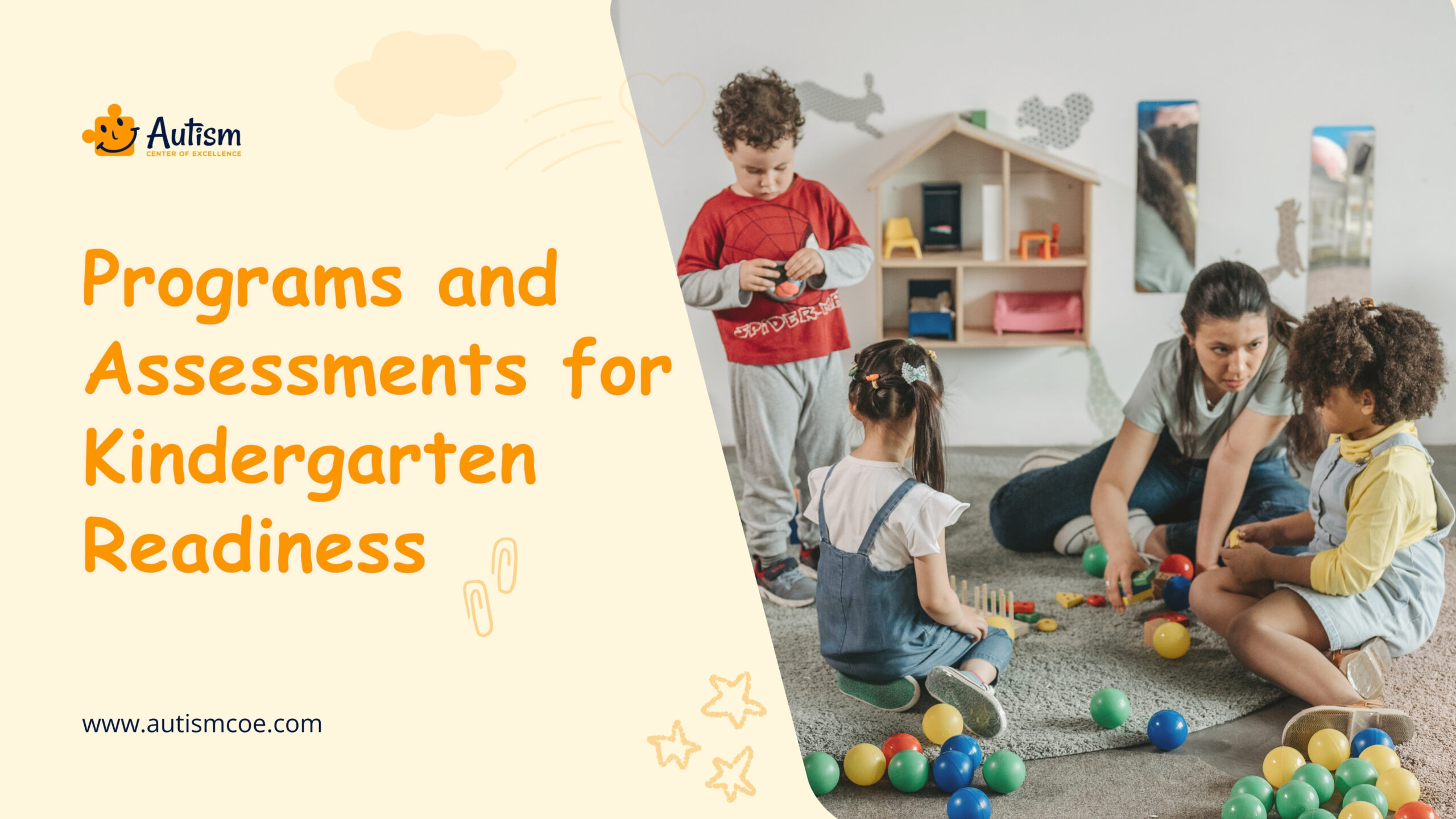
Kindergarten Readiness Programs and Assessments
Kindergarten Preschool education programs are specially designed to help children develop certain skills that will make them easily Transition to School. These programs are a combination of instructed and free activities intended for enhancing social contact, communication, and independence. For children with autism, some Kindergarten Readiness Programs might also help the child learn how to cope with Sensory Overload, learn appropriate behavior, and build confidence in new environments.
What is a Kindergarten Readiness Assessment?
A kindergarten readiness test assesses a child in certain aspects, for instance, his language, motor skills, or social skills. This type of assessment is valuable because it is able to reveal to a family where more resources may be needed, which means that the family can create a plan for success with the parent and educator.
Kindergarten screening tools also identify the child’s potential in different aspects of development. These readiness assessments are used in children with autism in order to know the child’s sensory needs, evaluate the child’s functional communication, and find out what sort of social or emotional support the child might need in order to have a good school experience.
Frequently Asked Questions & Answer
What Challenges Do Autistic Children Face When Starting Kindergarten?
They may find it challenging to cope with routines, social interactions, sensory sensitivities, and communication differences.
What Assessments Evaluate Kindergarten Readiness for Children with Autism?
Kindergarten readiness assessments measure the child’s developmental milestones, such as social, communication, and adaptive skills, to identify areas that require improvement.
What is the Best Age to Start Kindergarten?
The ideal age for starting kindergarten is around 5 years old, but this can vary based on a child’s developmental readiness and local school requirements.
Is It Acceptable for Children to Skip Kindergarten?
It depends. Kindergarten helps build important social and academic skills, but some kids are ready to enter first grade without it.
Conclusion
Preparing your Child with Autism for kindergarten is a very rewarding journey that sets the stage for their future success. At AutismCOE, we specialize in supporting families through this transition by focusing on key readiness skills and the benefits of ABA therapy. With our guidance and your constant support, you can ensure your child thrives in this new environment. Every child progresses at their own pace, and proper preparation will allow your child to have a positive and enriching kindergarten experience.
Please Note: The content of this blog is for informational purposes only and should not be considered a substitute for professional medical advice, diagnosis, or treatment. Consult a qualified healthcare professional for personalized guidance tailored to your specific situation.

Bhavika Bhasin
Bhavika Bhasin is the Research and Marketing officer at AutismCOE. She works with children and adults with ASD. Her clinical research includes evaluating various available autism screening and diagnosis methods and their efficacy. She is currently developing a novel screening exam that is indicated to be more accurate than the existing available exams. She is also writes articles papers for various publications.

